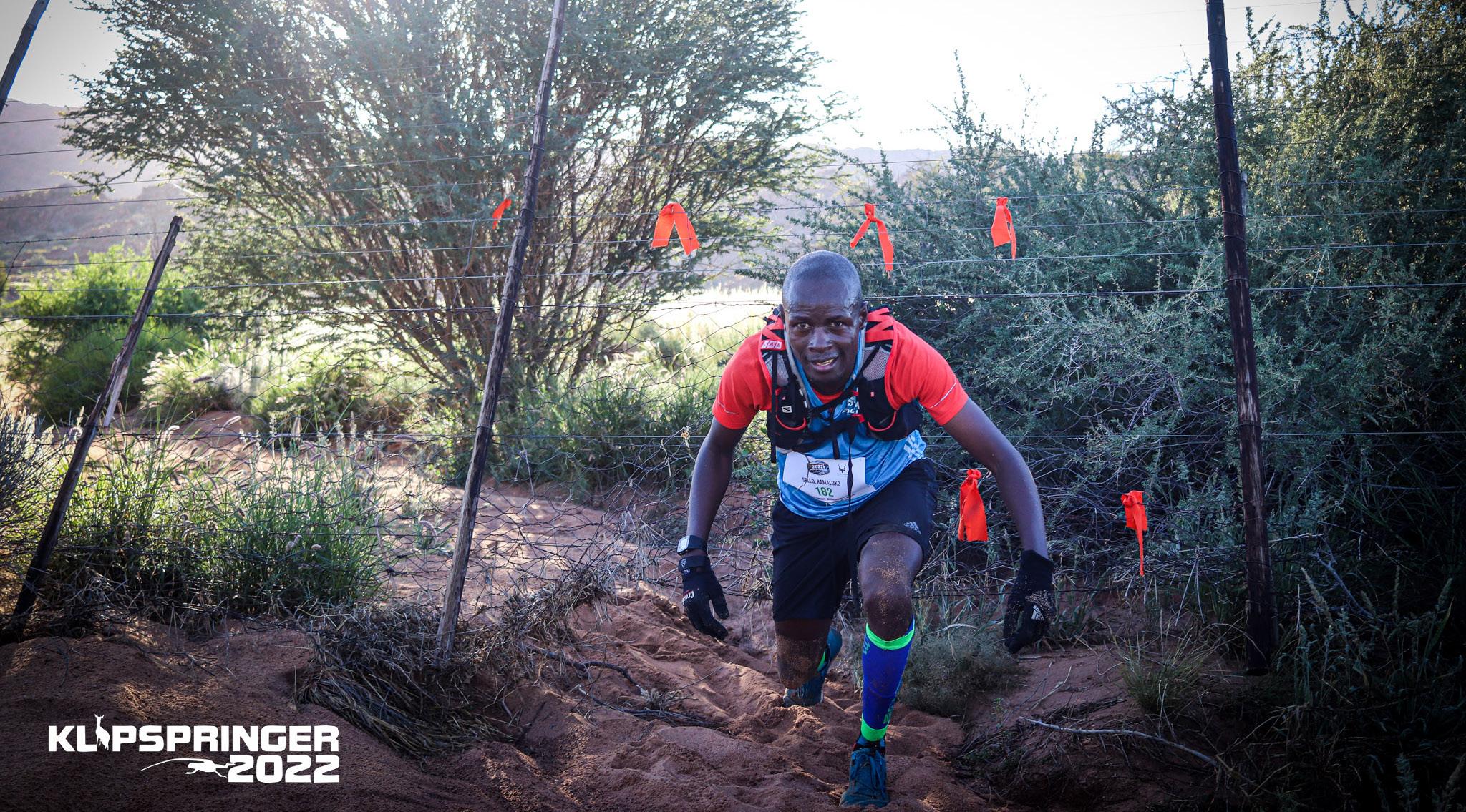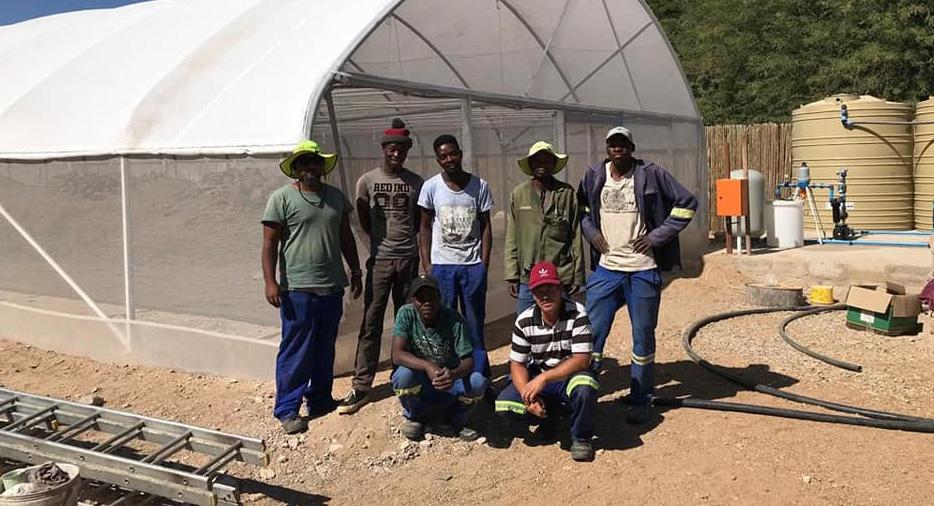
7 minute read
ARID NEWS
By Genevieve Maasdorp
Advertisement
South African National Parks announced the conviction of two succulent poachers from Richtersveld. Members of the Ranger Corp assisted by the botanical team and South African Police Services affected the arrest and the consecutive sentencing and convicting of the two members of the public who endangered Halfmens trees within |Ai|Ais/Richtersveld Transfrontier Park.
The Richtersveld National Park is a contractual park jointly managed by the local community board, called the RGBK, and SANParks. It is the only National Park where people are allowed to live and continue with livestock farming within a national park.
SANParks finds the removal and permanent damage caused by the removal/destruction of the 14 Pachypodium namaquanum as one of the worst cases in the history of the Richtersveld National Park due to the significant cultural, tourism and natural value the plants have for the organisation and the South African public.
Due to the sensitivity of the species as confirmed by various specialists, and the fact that it will not
Halfmens succelents poached in ARTP
be possible to rehabilitate the specimens back into their natural habitat, it is seen as a major loss for conservation and has a very negative impact on the specific population. The species are of great value and are seen as a valuable asset to the |Ai|Ais/ Richtersveld Transfrontier Park, which is the only National Park in South Africa where the species is being conserved.
Four suspects were arrested, of which two turned state witnesses and assisted with the conviction of the other two who were sentenced and convicted on Thursday, 21 April 2022, to seven years in jail.
According to the National Environmental Management: Biodiversity Act, 2004 (Act No. 10 of 2004) Part 7, 16 (Offences and Penalties) (1) (b) No person may have in his or her possession or under his or her control, or to offer or expose for sale or display to the public, any specimen of a species listed in the Appendices which was not legally acquired; (2) A person contravening sub regulation (1) is guilty of the offence and shall be liable on conviction to (a) a fine not exceeding five
6th Annual Klipspringer Challenge Trail at Augrabies Falls
By Christine du Plessis
Taking on the challenging Augrabies Klipspringer race
The Augrabies Falls National Park has recently hosted the 6th running of the Klipspringer Challenge with participants from as far as Mauritius, Namibia, Botswana and South Africa during the weekend of 30 April to 1 May 2022. It consists of two days of tough, spectacular trail running in the Kalahari Desert and in and along the magnificent Orange River in the world class Augrabies Falls National Park.
There are two races per day, the Challenge which consists of 65km over two days (33km and 32km) and the shorter Lite race of 40km over two days (22km and 18km). The river and the falls were truly spectacular, actually peaking on race weekend at 2 792 cumec (for context, the usual flow around Klipspringer time is between 50 and 100 cumec). This made for an awe-inspiring, once in a lifetime experience for the runners.
Day one was a run in the remote, pristine northern section of the park, north of the Orange River. Although the natural abundance made for some tougher going, it was an exhilarating experience topped off by some festive hospitality at the Khamkirri Race Village, watching the swollen river fly past.

Day two was back in the main southern section of the park, starting and finishing in the Rest Camp camping area. After some adjustments and detours affecting the usual route at the start, runners were treated to the incredible sight of a full Orange River raging through the canyon below while they negotiated the rocky terrain along the rim, popping out at what can be considered as the world’s most spectacular water table at Ararat – probably the best viewpoint in the country on that day. The most significant change to the route from previous years was that Challenge runners could not safely access the gorge to follow the traditional route along the river. Plan B was to head south up to the higher terrain, offering magnificent views over the park
and the impressive spray produced by the raging falls, especially the almost constant solo cloud of spray made by the many cascading falls floating above it. Most of the runners loved the detour which was perfectly suited for faster runners and made for slightly quicker overall race times.
The results were as follows, with four runners from the Northern Cape in the top 12:
CHALLENGE
Men
1. Pieter Laubscher (Northern Cape) 6h11m05s 2. Cornelius Rall (Gauteng) 6h11m44s 3. Jakob Volmoer (Western Cape) 6h25m22s
Women
1. Kate Mapham (Western Cape) 7h35m10s 2. Karen Carstens (Western Cape) 8h27m22s 3. Frances King (Botswana) 8h38m22s
LITE
Men
1. Doug Rush (Namibia) 3h25m17s 2. Sello Ramaloko (Gauteng) 3h42m04s 3. Hanro Schoeman (Northern Cape) 4h03m48s
Women
1. Kate Nugent (Northern Cape) 4h27m39s 2. Delida Nugent (Free Sate) 4h37m13s 3. Ilana Human (Northern Cape) 4h43m10s
Water points were sponsored and enthusiastically manned by McDonald’s Transport, Raisins South Africa, ORC and the team from the Augrabies Falls National Park. The rest of the park staff and the team at Khamkirri were at their very best, ensuring runners had the times of their lives and will be back for Klipspringer Challenge 2023.
...continued from Page 12
million rand or imprisonment for a period not exceeding five years and in the case of a second or subsequent conviction, to a fine not exceeding R10 million or imprisonment for a period not exceeding 10 years; or (b) in both instances referred to in paragraph (a), both such fine or imprisonment; or (c) in the case of repeated offenders, a fine or imprisonment or both a fine and imprisonment as referred to in (a) above and being banned from ever applying for a permit to trade in CITES listed species again.
In the National Environmental Management: Biodiversity Act 10 of 2004, Chapter 4 (Threatened or Protected Ecosystems and Species), Part 2 to 57, the following is stated: Restricted activities involving listed threatened or protected species and species to which an international agreement regulating international trade applies (Heading of Section 57 amended by Section 5(a) of Act 14 of 2013): (1) A person may not carry out a restricted activity involving a specimen of a listed threatened or protected species without a permit issued in terms of Chapter 7.
All plants in the Northern Cape Province are protected and a permit is needed to remove, transport or possess plants.
Lucius Moolman, the Regional General Manager welcomes the conviction and says the following: “We, as SANParks, consider the poaching of succulents a very serious act and will not tolerate these acts from members of the public and will not rest until each and every suspect is convicted and the poaching has stopped.”
Green House for Richtersveld’s Botanical Garden
By Genevieve Maasdorp
Construction of the brand new greenhouse for ARTP

SANParks and SANBI are pleased to announce the generous donation of a state of the art net house facility which was donated to the Richtersveld Desert Botanical Gardens by the British Cactus and Succulent Society (BCSS). This net house, called the BCSS Green House is a conservation initiative to rescue various plant species from poachers.
In the long term more or less 170 species of succulents and bulbs targeted for the illegal trade market will safely be grown in the secure facility. The plants will be used for seed harvesting and these seeds will be used for rehabilitation to be sold online and hopefully curb the need of illegal harvesting by providing an opportunity for succulent lovers to legally obtain their desired plants and grow them. It is more practical to grow plants from seeds, and more rewarding, as they acclimatise to the growers’ conditions and provide better-looking plants than to poach them illegally.
A further addition to the donation are the more than 400 plant species in the gardens and various Conophytums in the Conophytum House, of which seeds will be made available online via Silverhillseeds in the near future. The project operates under legal permits. It is crucial that the public doesn’t buy any plants without being 100% sure they are legally obtained and sold with the necessary permits. The donation from BCSS is to the value of R520 000.
|Ai|Ais/Richtersveld Transfrontier Park is grateful for this donation and the botanical team are very excited to start with this project to curb illegal succulent poaching.










